The “albie” (aka little tunny or false albacore) is the most abundant and, I’d argue best, light-tackle gamefish in the western part of its global temperate and tropical range—from Massachusetts to Brazil, the Gulf of Mexico, Caribbean and Bermuda.
This mini-tuna attains immense speeds via fins that fold into grooves, a hard, sickle tail equipped with horizontal stabilizers and a ramjet-like oxygenating system whereby water is pushed, rather than pumped, through massive, blood-rich gills. When albies get excited, as when they’re slashing through balls of bay anchovies, peanut bunker or sand lances, they light up like marlin, backs glowing neon green.
In the Northeast your standard seven-pounder will tear out 50 yards of backing on its first run. Farther south, where 15-pounders abound, you won’t be overgunned with a 12-weight flyrod.
With the possible exception of tarpon, Americans find albies to be the nastiest tasting fish in the sea. I broiled the first one I ever caught, and it literally stank me out of the kitchen. The vile taste of these fish precludes any commercial fishery, proclaim my fellow albie addicts.
I wish it were so. But not all cultures are repulsed by strong, bloody fish flesh. Albies are commercially important in many locations around the world. In the West Indies, for example, they’re marketed fresh, canned, smoked, dried and frozen. Asians buy them whole at East Coast fish markets. There’s already a small U.S. commercial fishery, and it’s expanding. As I write, a guy is gillnetting albies where I fish near Gardiners Island, New York; and they’re fetching him 50 cents a pound more than bluefish.
What’s more, the predictable migrations and tight schooling behavior of albies make them highly vulnerable to large-scale purse-seining for fishmeal, cat food and the reduction market.
The regional fishery management councils, which submit management plans to the National Marine Fisheries Service (NMFS) for approval, generally choose not to regulate take of fish like albies because there are lots of them. This has been the traditional thinking of fisheries managers—take no proactive measures to prevent depletion. Only react to depletion; and then don’t manage for abundance but maximum sustained yield, i.e. dead-on-the-dock poundage. Furthermore, think only about individual species. Pay no attention to ecological realities such as the fact that fish have to eat other fish. Allow maximum sustained yield (or worse) for fish like menhaden, then express astonishment when menhaden predators like striped bass, weakfish and Atlantic bonito go down the tubes.

Consider chub mackerel, smaller, big-eyed cousins of Atlantic mackerel. They provide a perfect example of how a large-scale fishery for an unmanaged species can spring up before managers notice. In 2008 virtually no chub mackerel were commercially taken. By 2013 a mesh-net fishery, based mostly in New Jersey, was landing 5.25 million pounds a year.
But not all managers are ecologically challenged. In 2015 the Mid-Atlantic Fishery Management Council had a brain storm: Why not prevent largescale, directed fisheries from plundering the unmanaged forage fish that sustain managed species—at least until science can show the impact of such fisheries?
Accordingly, in 2015 the council voted the “Unmanaged Forage Omnibus Amendment” aimed at preventing expansion of current fisheries on 15 unmanaged forage species, albies included. It was a rare, enlightened move to protect ecosystems.
Albie anglers don’t like to think of their favorite fish as bait, but that’s exactly what albies are. Everything eats them—sharks, tunas, wahoo, king mackerel, mahi, jacks, billfish, dolphins ... Go out beyond the 20-fathom line and you see them spraying into the air like the bait they chase inshore. Albies are a keystone species in the marine food web.
And by protecting albies the council would also protect the guides who depend on them.
Testifying before the council was Capt. David Blinken who has guided out of Montauk, New York for 21 years. He gave me this summary: “False Albacore need to be protected now; we can’t afford to wait until it’s too late. Albies need to be sustainable from a harvest perspective, but also in an ecosystem context. In other words, the amendment was designed to make sure there are enough around for predators. And albies give us a shot at diversity. Since the demise of the striped bass fishery we rely on them to satisfy our clients.”

Capt. Ernie French, who has also guided out of Montauk for 21 years, testified as follows: “I spend 40 days a year specifically targeting false albacore because at this point there are no striped bass. That’s $32,000 of income to me. The people who fish with me spend roughly $250 a day on hotels and eating. That’s roughly $10,000. There are 40 of us [light-tackle guides] here. That’s between $150,000 and $200,000. That’s just in Montauk. Not Cape Cod, not Martha’s Vineyard, not Point Judith, not Harkers Island [North Carolina]. For two fishermen paying living expenses and charter it’s about $1,000 a day. They usually catch about 15 fish a day. That’s $75 a fish. But that fish is still living [because it was released]. So that fish is a priceless resource. If these false albacore go down the path of the striped bass, my business is done.”
There was every reason to protect albies and no reason not to. Of 13 organizations weighing in with the council 10 wanted albies protected. Filing written comments in favor were 16,239 people of 21,000 (a rounded figure and the only one available). Many of the 4,761 or so remaining weren’t necessarily opposed.
Then-council member Capt. John McMurray, a light-tackle tuna, striper and albie guide based in Oceanside, New York, fought valiantly to keep albies on the protected list. “There’s plenty of rationale for adding them,” he told his fellow members. “The public has been very vocal about this due to [the albie’s] importance not only as a forage fish but to the recreational fishing community and the perceived or real threat of a large-scale fishery developing … I’m not sure this species is in need of management. The whole idea of this action is to head it off before it needs conservation management.”
Still, at the August 8, 2016 meeting the council voted to drop albies. This was basically the doing of one member—Adam Nowalsky who chairs the New Jersey chapter of the Recreational Fishing Alliance (RFA).
The RFA is the NRA of fishing organizations. While it claims to represent anglers, its board, staff and funders are dominated by fishing-boat builders, fishing-gear manufacturers, advertisers fronting as fish writers, party boat owners, and charter boat owners who call themselves sport fishermen, some of whom are commercials by legal definition because they retain and sell their clients’ catch. There’s scarcely anyone involved who doesn’t profit from fish killing.

According to the RFA the only thing standing in the way of more dead fish for its members is the environmental community. For example, it defines the amended Magnuson-Stevens Fishery Conservation and Management Act, which outlaws overfishing and mandates speedy recovery of depleted stocks, as the dirty work of “anti-fishing environmental groups who have lobbied against our efforts” and who control the minds of anglers “still drinking the Kool-Aid of the anti-fishing environmental groups.”
When President Obama signed the “National Ocean Policy”—a common-sense initiative hatched by President George W. Bush and Republicans to restore our declining marine and coastal resources—the RFA came out with this: “Our president appears to be infatuated with nonsense and bureaucracy, and once again proves that his authority to rule is more powerful than the legislative process alone, signing his name to decrees as if he were a king.”
The RFA defines advocacy for non-toxic sinkers so that dozens of bird species, including loons, won’t keep dying from lead poisoning as “more anti-fishing, anti-fisherman, doomsday protectionism in the name of loons and loony extremists.”
It’s not as if RFA members and benefactors have any interest in retaining albies. And why would an official of a group at least purporting to represent recreational fishermen oppose protecting one of the most important recreational resources on the East Coast? It made no sense.
The Mid-Atlantic Fishery Management Council sent me audio recordings of its recent meetings, and in a vain attempt to discern Nowalsky’s motive I listened carefully and repeatedly to his commentary. His entire case was that the false albacore is too big to be considered forage: “This is a 15-pound tuna fish,” he declared. Nowalsky runs a 35-foot charter fishing vessel out of Atlantic City, New Jersey. He has to know that albies don’t hatch at 15 pounds and that large pelagics chow down on fish of 15 pounds and more.
I can’t help thinking Nowalsky was motivated by pique. Of the many enviros the RFA loves to hate, McMurray, a perennial voice for mandated catch limits, tops the list. When McMurray voted to lower the catch limit for summer flounder, a stock in freefall from three consecutive years of spawning failure, the RFA fired off a press release charging that he had “torpedoed the struggling recreational fishing industry [causing] socioeconomic pain” and was basically an anti-fishing tree hugger because he served as the “full-time Norcross Wildlife Foundation grants administrator.” No mention that McMurray was spending about 150 days a year at sea guiding and that Norcross grants were going to outfits like the Coastal Conservation Association, Jersey Coast Anglers Association, Trout Unlimited, Hudson River Fisherman’s Association, Fish America Foundation, Atlantic Salmon Federation, Clean Ocean Action, American Fisheries Society and virtually every Water/River/Sound Keeper in the U.S.

Is there hope for proactive albie protection? I put the question to McMurray who, unfortunately for anglers and fish, has been term-limited off the council. He was not reassuring. “Even if the council were to put albies back on the unmanaged forage fish list, NMFS probably wouldn’t allow it,” he said. “The alternative is a fishery management plan, and that would be a disaster. You’d have a bunch of eggheads in a room, and they’re gonna look at this massive biomass of fish that nobody’s really targeting and say you can take a gazillion pounds out of it and it will still be fine; and they’d be right from a yield perspective. But it wouldn’t be fine for anglers and guides. The unmanaged forage fish amendment was the perfect vehicle to manage something before it needs to be rebuilt.”
A fishery management plan for albies is on the council’s “priority list” for 2018.



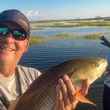

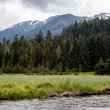



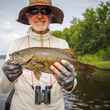
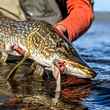

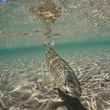

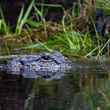

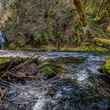


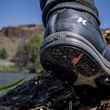
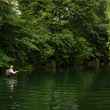



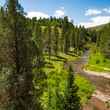
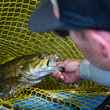

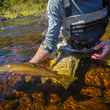
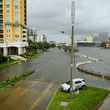
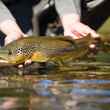
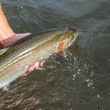
Comments
joseph perhauch replied on Permalink
I'm not a fly fisherman, but I am a surf caster, and I do occasionally get in a trip for the larger pelagic species, and I am just as concerned as you are about the relentless attack on forage species, including "albies". We all depend on those little (comparatively speaking) critters that the bigger ones find so tasty to sustain fisheries that have traditionally supplied us with great recreation, as well as the occasional meal of fresh fish. I know how much it costs for me to indulge my love for fishing, and I know that my money supports charter and head boat operators, as well as bait and tackle shop owners, small business owners who are the backbone of sea side communities. We need to protect the little fish, or pretty soon there won't be any big ones.
CAPT. DON ROBERTS replied on Permalink
I'm with you. People better start waking up. This week we just saw what happened to the White Rhino due to greed of certain people. I was a commercial fisherman for 10 yrs catching shellfish. I had a chance to work on a dagger for 3 days. The amount of fish that was killed in the by catch was unbelievable to me. What a waste I thought. I never worked on one again and a couple years later the whole ground fishery collapsed.It has never recovered. Everyone who fishes for sport needs to get on board. Even if you don"t fish for them it's just a matter of time till they get to what you fish for, if they haven't already. If people don't start caring about the creatures of the planet , our kids will inherit a lifeless place. That would be sad. Get on board and do something.
Pages